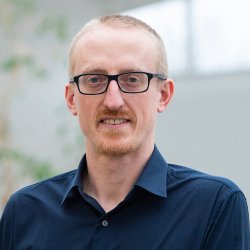
Dr Michael Humbracht
About
Biography
Michael joined Surrey as a lecturer in 2018 shortly after his PhD, which he also completed here at Surrey. Previously, Michael earned a master’s degree in applied cultural analysis, within the department of Ethnology, at the University of Lund in Southern Sweden. Michael has worked on multiple research projects that have centred around migration, tourism and health; these projects have covered topics such as the role material objects play in creating a sense of belonging for migrants, ethical implications for stem cell tourism, and how digital technology and visiting friends and relatives mobilities contribute to changes in migrant’s personal relationships. Michael also has experience and a keen interest in conducting applied research. In 2012 he completed a research project in partnership with the Malmo city tourist board on understanding ways to include migrants in the city’s transition to a tourism based economy.
Areas of specialism
My qualifications
ResearchResearch interests
Generally, Michael’s research interests involve understanding the cultural and social implications of intersecting tourist, migrant and digital mobilities in everyday life. Michael’s research is grounded primarily in post-structuralist theories of mobility, ethics and affect that help understand the discursive, embodied and material dimensions of contemporary belonging, identity and place. In particular, Michael’s interests are divided into four streams: First, understanding the role migration plays in cities transitioning from industrial economies to experience economies; Two, understanding the link between migrant mobilities and shifting meanings of intimacy, kinship and friendship. Three, understanding and improving well-being through health tourism; Four, hope and tourism futures
Research interests
Generally, Michael’s research interests involve understanding the cultural and social implications of intersecting tourist, migrant and digital mobilities in everyday life. Michael’s research is grounded primarily in post-structuralist theories of mobility, ethics and affect that help understand the discursive, embodied and material dimensions of contemporary belonging, identity and place. In particular, Michael’s interests are divided into four streams: First, understanding the role migration plays in cities transitioning from industrial economies to experience economies; Two, understanding the link between migrant mobilities and shifting meanings of intimacy, kinship and friendship. Three, understanding and improving well-being through health tourism; Four, hope and tourism futures
Teaching
Michael teaches on the following modules:
Applied Research in Tourism, Hospitality and Events (Module Leader)
Entrepreneurship in Tourism, Hospitality and Events
Tourism Social Science
Professional Ethics
Publications
Highlights
- Humbracht, M., Williams, A., & Cohen, S. (2023) Cruel (Im)mobilities: Nearly Utopian Intimacies in Italian Personal Relationships. Global Networks. 23, 188–202.
- Humbracht, M., Cohen, S., & Williams, A. (2022) Aspirational Intimacy in Visiting Friends and Relatives. Annals of Tourism Research, 94.
- Cohen, S., Stienmetz, J., Hanna, P., Humbracht,. & Debbie Hopkins (2020) Shadowcasting tourism knowledge through media: Self-driving sex cars?, Annals of Tourism Research, 85.
- Munoz J, Griffin T, Humbracht M. 2017. Towards a new definition for “visiting friends and relatives’. International Journal of Tourism Research. 19 (5). Pgs 477-485.
- Humbracht M, Hyun I, Lundin S. 2016. Managing hope and spiritual distress: the centrality of the doctor patient relationship in combating stem cell travel. In Zeiler K and Malmqvist E, Sharing within and Across Borders. Routledge.
- Book Review: Humbracht M. 2015. Lifestyle Mobilities Intersections of Travel, Leisure and Migration, by Duncan T, Cohen C & Thulemark M. Tourism Analysis, 20(1).
- Humbracht M. 2015. Reimagining Transnational Relations: the Embodied Politics of Visiting Friends and Relatives Mobilities. Population, Space and Place. 21 (7).
- Povrzanovic Frykman M, Humbracht M. 2013. Making Palpable Connections, Objects in Migrants Transnational Lives. Ethnologia Scandinavica, Vol.43.